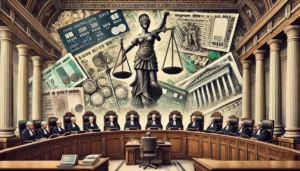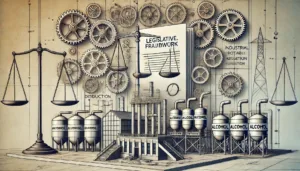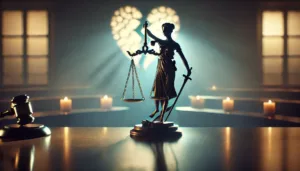Facts of the Case
The case involves the appellant, Ashok, who was accused of raping and murdering a 10-year-old victim in 2009. On the day of the incident, the victim and her cousin, aged 7, were grazing goats near a tubewell operated by the appellant. The victim, after requesting drinking water from the appellant, was allegedly taken into the tubewell cabin where the crime occurred. The appellant was later convicted under Sections 376, 302, and 201 of the IPC and Section 3(2)(v) of the SC/ST (Prevention of Atrocities) Act. The trial court sentenced him to death, but the High Court later commuted the sentence to life imprisonment. The appellant then challenged the conviction in the Supreme Court.
Contentions of the Appellant
The appellant argued that there were inconsistencies in the testimonies of key witnesses. PW-1’s account based on what was reported by PW-2 differed from the latter’s actual deposition. The appellant contended that PW-2’s testimony lacked reliability and appeared tutored due to the two-and-a-half-year gap before it was recorded. He also highlighted the lack of corroborative evidence, such as independent proof linking the bloodstains on the appellant’s clothing to the victim. The appellant further asserted that the trial was marred by significant procedural lapses, including non-compliance with Section 313 of the CrPC and inadequate legal representation during key stages.
Contentions of the Respondent
The respondent (State of Uttar Pradesh) defended the conviction, arguing that the evidence provided by PW-2, despite discrepancies, and the recovery of the victim’s belongings at the appellant’s instance, established the chain of circumstantial evidence. The State emphasized the heinous nature of the crime and supported the High Court’s judgment.
Issues Raised
- Whether the discrepancies in witness testimonies affected the credibility of the prosecution’s case?
- Whether the procedural lapses, including non-compliance with Section 313 of the CrPC, vitiated the trial?
- Whether the appellant was prejudiced by inadequate legal aid during the trial?
- Whether the circumstantial evidence was sufficient to uphold the appellant’s conviction?
Observations/Findings by the Supreme Court
The Court observed several procedural irregularities, including a failure to provide effective legal aid to the appellant and to comply with Section 313 of the CrPC. It noted that the incriminating circumstances were not adequately put to the appellant, violating his right to a fair trial. Additionally, the evidence provided by PW-2 was deemed unreliable due to inconsistencies and delay in recording his statement. The Court found that the chain of circumstantial evidence was incomplete, and the prosecution failed to prove the case beyond a reasonable doubt.
Principle of the Case
The judgment underscored the fundamental right of the accused to effective legal representation and a fair trial as guaranteed under Article 21 of the Constitution. It emphasized the duty of courts and prosecutors to ensure compliance with procedural safeguards to prevent miscarriage of justice.
Final Order
The Supreme Court set aside the convictions and sentences imposed by the lower courts and acquitted the appellant of all charges. It directed that the appellant’s bail bonds be canceled and provided guidelines to enhance the quality of legal aid in serious criminal cases.
Guidelines
- It is the duty of the Court to ensure that proper legal aid is provided to an accused.
- When an accused is not represented by an advocate, it is the duty of every Public Prosecutor to point out to the Court the requirement of providing him free legal aid. The reason is that it is the duty of the Public Prosecutor to ensure that the trial is conducted fairly and lawfully.
- Even if the Court is inclined to frame charges or record examination-in-chief of the prosecution witnesses in a case where the accused has not engaged any advocate, it is incumbent upon the Public Prosecutor to request the Court not to proceed without offering legal aid to the accused.
- It is the duty of the Public Prosecutor to assist the Trial Court in recording the statement of the accused under Section 313 of the CrPC. If the Court omits to put any material circumstance brought on record against the accused, the Public Prosecutor must bring it to the notice of the Court while the examination of the accused is being recorded. He must assist the Court in framing the questions to be put to the accused. As it is the duty of the Public Prosecutor to ensure that those who are guilty of the commission of an offence must be punished, it is also his duty to ensure that there are no infirmities in the conduct of the trial which will cause prejudice to the accused.
- An accused who is not represented by an advocate is entitled to free legal aid at all material stages starting from remand. Every accused has the right to get legal aid, even to file bail petitions.
- At all material stages, including the stage of framing the charge, recording the evidence, etc., it is the duty of the Court to make the accused aware of his right to get free legal aid. If the accused expresses that he needs legal aid, the Trial Court must ensure that a legal aid advocate is appointed to represent the accused.
- As held in the case of Anokhilal v. State of M.P., in all the cases where there is a possibility of a life sentence or death sentence, only those learned advocates who have put in a minimum of ten years of practice on the criminal side should be considered to be appointed as amicus curiae or as a legal aid advocate. Even in cases not covered by the categories mentioned above, the accused is entitled to a legal aid advocate who has good knowledge of the law and has experience conducting trials on the criminal side. It would be ideal if the Legal Services Authorities at all levels give proper training to the newly appointed legal aid advocates, not only by conducting lectures but also by allowing the newly appointed legal aid advocates to work with senior members of the Bar in a requisite number of trials.
- The State Legal Services Authorities shall issue directions to the Legal Services Authorities at all levels to monitor the work of the legal aid advocate and shall ensure that the legal aid advocates attend the court regularly and punctually when the cases entrusted to them are fixed.
- It is necessary to ensure that the same legal aid advocate is continued throughout the trial unless there are compelling reasons to do so or unless the accused appoints an advocate of his choice.
- In cases where the offences are of a very serious nature and complicated legal and factual issues are involved, the Court, instead of appointing an empanelled legal aid advocate, may appoint a senior member of the Bar who has vast experience conducting trials to espouse the accused’s cause so that the accused gets the best possible legal assistance.
- The right of the accused to defend himself in a criminal trial is guaranteed by Article 21 of the Constitution of India. He is entitled to a fair trial. But if effective legal aid is not made available to an accused who is unable to engage an advocate, it will amount to an infringement of his fundamental rights guaranteed by Article 21.
- If legal aid is provided only for the sake of providing it, it will serve no purpose. Legal aid must be effective. Advocates appointed to espouse the accused’s cause must have good knowledge of criminal laws, the law of evidence, and procedural laws apart from other important statutes. As there is a constitutional right to legal aid, that right will be effective only if the legal aid provided is of good quality. If the legal aid advocate provided to an accused is not competent enough to conduct the trial efficiently, the rights of the accused will be violated.
Impact on Public Law and Order
The judgment reinforces the importance of procedural fairness in criminal trials, ensuring that even individuals accused of heinous crimes are afforded their constitutional rights. It highlights the responsibility of the legal system to prevent wrongful convictions, thereby upholding public confidence in the judiciary. Effective legal aid and adherence to procedural norms serve as safeguards against arbitrariness, promoting justice and accountability in the enforcement of law and order.
Case Citation
Supreme Court of India, Ashok v. State of Uttar Pradesh, Criminal Appeal No. 771 of 2024, Judgment dated December 2, 2024.








